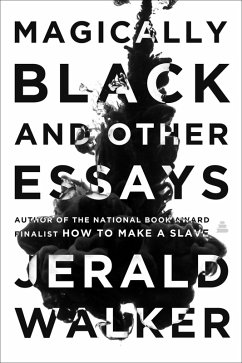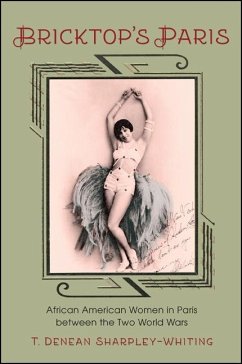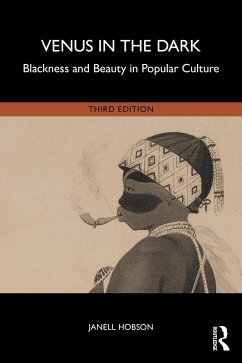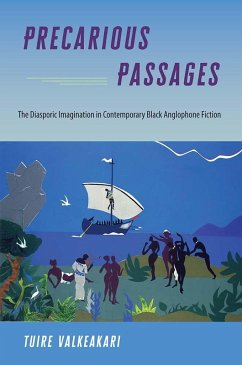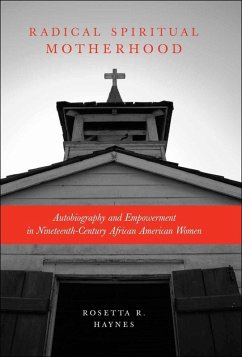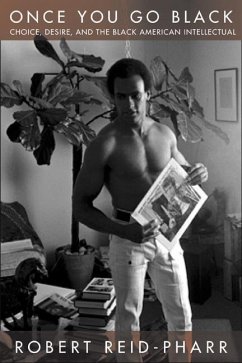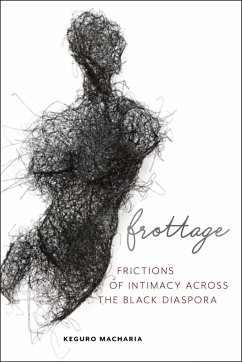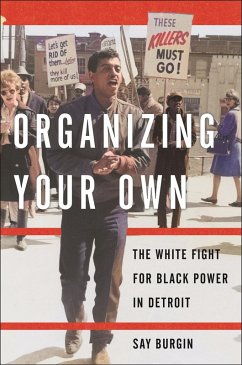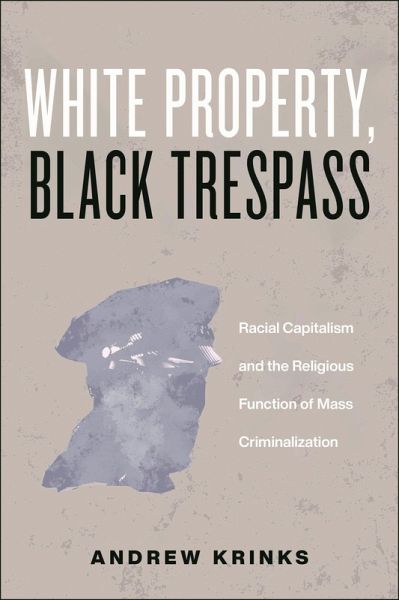
White Property, Black Trespass (eBook, ePUB)
Racial Capitalism and the Religious Function of Mass Criminalization
Versandkostenfrei!
Sofort per Download lieferbar
25,95 €
inkl. MwSt.
Weitere Ausgaben:

PAYBACK Punkte
13 °P sammeln!
Uncovers the inherently religious structure of the criminalization of Black, Indigenous, and dispossessed peoplesMost popular critical accounts of mass criminalization interpret police and prisons as purely social or political phenomena. While such accounts have been indispensable in moving millions into collective action and resistance, the carceral state remains as pervasive as ever.White Property, Black Trespass argues that understanding why we have police and prisons, and building a world of safety and abundance beyond them, requires that we acknowledge the inherently religious function th...
Uncovers the inherently religious structure of the criminalization of Black, Indigenous, and dispossessed peoples
Most popular critical accounts of mass criminalization interpret police and prisons as purely social or political phenomena. While such accounts have been indispensable in moving millions into collective action and resistance, the carceral state remains as pervasive as ever.
White Property, Black Trespass argues that understanding why we have police and prisons, and building a world of safety and abundance beyond them, requires that we acknowledge the inherently religious function that criminalization fulfills for a colonial and racial capitalist order that puts its faith in cops and cages to save it from the existential threat of disorder that its own structural violence creates.
The story of criminalization, Krinks shows, begins with the eurochristian aspiration to become God at the expense of all others-an aspiration that gives rise to the pseudo-sacred powers of whiteness and property, and, by extension, the police power that exists to serve and protect them. Tracing the historical continuity and religiosity of the color line, the property line, and the thin blue line, Krinks reveals police power as the pseudo-divine power to exile nonwhite and dispossessed trespassers to carceral hell.
At once incisive and expansive, this groundbreaking work deepens understanding of racial capitalism and mass criminalization by illuminating the religious mythologies that animate them. It concludes with thoughts on what might be entailed in a religion rooted in rejection of the religious idolatry of mass criminalization-a religion of abolition.
Most popular critical accounts of mass criminalization interpret police and prisons as purely social or political phenomena. While such accounts have been indispensable in moving millions into collective action and resistance, the carceral state remains as pervasive as ever.
White Property, Black Trespass argues that understanding why we have police and prisons, and building a world of safety and abundance beyond them, requires that we acknowledge the inherently religious function that criminalization fulfills for a colonial and racial capitalist order that puts its faith in cops and cages to save it from the existential threat of disorder that its own structural violence creates.
The story of criminalization, Krinks shows, begins with the eurochristian aspiration to become God at the expense of all others-an aspiration that gives rise to the pseudo-sacred powers of whiteness and property, and, by extension, the police power that exists to serve and protect them. Tracing the historical continuity and religiosity of the color line, the property line, and the thin blue line, Krinks reveals police power as the pseudo-divine power to exile nonwhite and dispossessed trespassers to carceral hell.
At once incisive and expansive, this groundbreaking work deepens understanding of racial capitalism and mass criminalization by illuminating the religious mythologies that animate them. It concludes with thoughts on what might be entailed in a religion rooted in rejection of the religious idolatry of mass criminalization-a religion of abolition.
Dieser Download kann aus rechtlichen Gründen nur mit Rechnungsadresse in A, D ausgeliefert werden.




